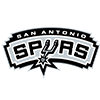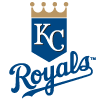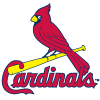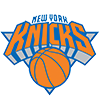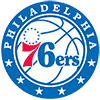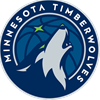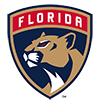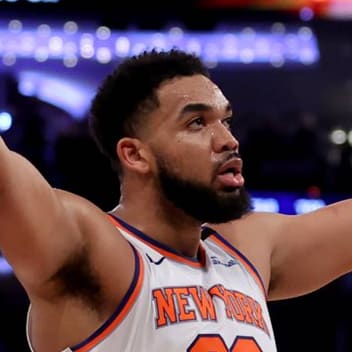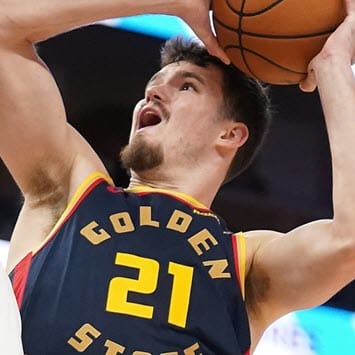The Give and Go
By Charlie Zegers and Chris Liss
RotoWire Staff Writers
From: Charlie Zegers
Sent: Dec 21, 2009, at 9:10 AM
To: Christopher Liss
Subject: Rookies
In the wake of the Tyreke Evans/Brandon Jennings showdown on Saturday night, I've been thinking a lot about this year's rookie class.
Going into the draft, we were told this year's draft didn't include a lot of stars, and that some of the most promising players were probably a year or two away from making major contributions. (Evans and Jennings - contenders 1 and 1a for Rookie of the Year honors at this point - were on that list.) But here we are, just days before Christmas, and by my count there's a good dozen or so rookies who have been worth an extended look in most fantasy formats.
And that's not counting the first overall pick, Blake Griffin, who has yet to suit up this year after hurting his knee in the preseason, or picks number two (Memphis' little-used Hasheem Thabeet), five (Minnesota's Ricky Rubio, playing in Spain) or eight (New York's Jordan Hill, stuck behind about a dozen other power forward-types in Mike D'Antoni's rotation.)
Here's my list of "Rookies Worth a Roster Spot" during the first six weeks of the season:
- Tyreke Evans: Emerging as a key player for a Kings team that isn't nearly as bad as expected, despite the loss of Kevin Martin to injury.
- Brandon Jennings: Sure, his game has flaws… but when his three is falling he's close to un-guardable
- Stephen Curry: Golden State is a mess, and Nelson's sub patterns can be hard to figure, but Steph can fill it up.
- James Harden: Two guard with excellent playmaking ability; a poor man's Brandon Roy. He'll play more as the season goes on.
- Jonny Flynn: Hate the fact that he's being shoe-horned into a triangle offense.
- Ty Lawson: I'm taking his lousy performance in his first NBA start as an aberration.
- Omri Casspi: Do-everything forward is pushing Spencer Hawes for playing time and should have center eligibility in a lot of formats by now.
- DeMar DeRozan: Performance has been spotty, but has shown flashes of his potential, particularly when he's driving to the hole and not settling for jumpers.
- Jonas Jerebko: Averaging over 11 points, 6.4 boards and 1.1 steals per game this month with Tayshaun Prince out.
- Wesley Matthews: One of the least-heralded rookies in this class filled in admirably when Utah was dealing with multiple backcourt injuries.
- Darren Collison: Had a surprisingly productive run while Chris Paul dealt with an ankle injury.
- DeJuan Blair: Already one of the league's better young rebounders; could get additional minutes with Matt Bonner out.
- Tyler Hansbrough: Putting up decent numbers despite the fact that he's been limited to around 22 minutes per game.
I'd give an honorable mention to Chase Budinger (out now with a sprained ankle), Jrue Holiday (has played well when given minutes, but there are a ton of guards competing for playing time in Philly now that Lou Williams is back), Austin Daye and Eric Maynor.
Are all of these guys worth owning right now, in all formats? Probably not. Collison's value was specifically tied to Paul's injury; when CP3 is healthy, his backup isn't worth much. Same goes for Matthews - who was most productive when Utah was short-handed, Jerebko and Daye and Holiday. But that's not really the point. In general, we've been conditioned to shy away from rookies - especially rookie guards - because the conventional wisdom tells us they'll have a hard time adjusting to the next level and, once they do, they'll hit the dreaded "rookie wall."
One theory I've heard about the success of rookie guards came from New Jersey's Rafer Alston, who suggested that the NBA's rule changes that essentially outlawed the hand-check on the perimeter made the college-to-NBA transition much easier for guards. Makes sense… and would explain why guys like Jennings, Flynn and Lawson - all of whom have lightning-quick first steps - have had immediate success. Big men - who don't often see players their own size when coming up through the high school and college ranks - may still have a harder time adjusting to NBA play, which could be the reason guys like Thabeet haven't put up big numbers yet, and why Blair seems to be such a defensive liability at this stage of the game. (Of course, Thabeet's problem could be the emergence of Marc Gasol, who is playing so well people are actually starting to suggest the trade involving him and his brother wasn't the most lopsided in recent memory.)
Is it time to start re-considering how we value rookies in fantasy NBA leagues? Or do you see this season as an aberration? Which rookies are you high on for the rest of this season? Where do you think we'll be looking to draft Evans and Jennings next year?
From: Christopher Liss
Sent: Monday, December 21, 2009 5:38 PM
To: Charlie Zegers
Subject: Re: Rookies
How long have the new hand-check rules been in effect? I keep seeing difference sources ranging from 1994 to 2005 or 2006 when supposedly they really enforced it. Because you can test your theory by seeing how smaller, quicker rookie guards did since then. Let's take the last few seasons when we know the rules were substantially similar to today's:
2008: Derrick Rose, Russell Westbrook, Jerryd Bayless, D.J. Augustin, Mario Chalmers
2007: Mike Conley, Acie Law, Rodney Stuckey (not that small), Javaris Crittenton (also 6-5), Aaron Brooks, Ramon Sessions
2006: Rajon Rondo, Marcus Williams, Kyle Lowry, Shannon Brown, Jordan Farmar, Sergio Rogriguez, Daniel Gibson, Dee Brown.
I don't think this group stands out. From 2008, Rose was the No. 1 overall pick, Westbrook was No. 4 and is still rough around the edges and Chalmers does most of his damage as a shooter. From 2007, Conley still hasn't lived up to his draft slot, and Stuckey's been good, but also has more size. Brooks' success might be a good example of the difference, but he was brought along slowly and didn't do much until the second half of last year. From 2006, Rondo is the real standout, and his coach Doc Rivers agrees with you that Rondo's it much easier these days. But after him there isn't much, unless you include Lowry who's shown flashes in a reserve role. So maybe being a small, quick guard is easier to an extent, but over the last several years most smaller rookie guards haven't amounted to much.
In that vein, I think Evans has an advantage over Jennings because he's 6-5, 215 pounds - how many players can perform at the NBA level weighing 170 like Jennings? Allen Iverson, maybe, but it's not a long list. (As an aside, the crazy thing about Iverson is that he lit it up before the hand check rules were strictly enforced. One can only wonder what he would have done in his prime under today's conditions.) Jennings also has to carry a big load for the Bucks, so it's not surprising he's shooting just 40.8 percent from the floor. I'd deal him because it's probably only going to get worse as the season wears. on.
I like Curry, too. Like Jennings, he's good for steals, threes and FG, but with less assists and a better FG percentage. His minutes are also creeping up of late, but as you point out, one never knows with Don Nelson.
Harden is more like Evans - with the bigger frame, though obviously, he's on a team with established scorers and shot-creators - and still is coming off the bench. But his role has already increased, and he's in a good spot to become more productive as the season goes on.
One player who impressed me earlier this year was Maynor who played surprisingly well when Deron Williams was out. He's not seeing significant minutes right now, but I'd take a flier on him in deeper leagues under the "skills, not roles" theory.
As for the big guys, all Blair and Hansbrough have done is produce when given the minutes, and given their college track records, I'd like to see them get more consistent run, especially Hansbrough whose team doesn't have much to lose. (And this is after wanting him to fail initially because all the abject slobbering over him by the mainstream college hoops media).
Budinger, incidentally, is an interesting player with good size for a swingman and a legitimate sharpshooter. He could become a Kyle Korver type, and Korver was a very serviceable roto player a few years ago.
It's hard to say where the top guys get drafted next year. There's so much time left, and really the key question is how well Jennings holds up given his workload and frame. Evans will probably go higher because he's the safer player.
From: Charlie Zegers
Sent: Dec 21, 2009, at 7:58 PM
To: Christopher Liss
Subject: Re: Rookies
First off, let's be clear… it's not my point; it's Skip-to-my-Lou's. I'm just the messenger.
And second, I don't think he was suggesting the hand-check rules (or lack thereof) specifically benefit any one type of player. I think he was suggesting that the old cliché about point guard being the toughest position to play as a rookie went out the window with physical perimeter defense. And that's backed up, to some degree, by the fact that we've had several point guards come into the league and have success in their first year - some with an apprenticeship as a bench player (Westbrook) or playing off the ball (Chalmers, Evans), some without (Rose, Jennings, Flynn).
For what it's worth - I think making the perimeter a no-touch zone benefits players of all types. So does Larry Bird. At the press conference promoting his book with Magic Johnson, Bird was almost salivating at the idea of what he would have been able to do if no one was allowed to muscle him outside the paint. That's probably the reason that guys like Kevin Durant and Austin Daye - both of whom arrived in the league carrying about 175 pounds on stick-thin 6-9-ish frames - have managed to get by. In the heyday of Pat Riley's Knicks and the old "no layup rule," they'd have gotten killed.
But maybe we're getting caught up in the wrong aspect of the question. I'm not trying to figure out if there's a type of player that's more likely to succeed in today's NBA - I'm wondering if rookies in general have become a safer fantasy investment than in the past.
But enough hypotheticals…
Hansbrough is a guy I really like right now, because I think a lot of people are looking at what he's doing as a 20-minute player and losing sight of the fact that he's still working his way back from a shin injury. Jim O'Brien was clear that he'd be limited to under 25 per game initially. I think he'll be playing 30-plus before long. And don't forget, he was a pretty credible three-point shooter for North Carolina. That's something we haven't really seen yet at this level, but there's no reason we won't.
I'm less optimistic about Blair getting big-time minutes this year. I'm sure he could handle it on the offensive end, but he's got a lot to learn on defense, and on a Gregg Popovic team, that'll cost him playing time. I think his ceiling is lower than Psycho-T's for that reason.
As for guys like Maynor and Budinger, I understand what you're saying about skills and roles, but with rare exceptions, I'll take a guy with a slightly lower ceiling and a regular spot in the rotation over a guy who could become a star but needs a trade or an injury to free up some playing time before that happens. Keeper leagues change the equation somewhat - but most of the leagues I play simply don't have that many bench spots.
Given the uncertain status of Tracy McGrady, Budinger seems like he's closer to winning a regular 25-minute role than Maynor, who really only gets to play when Deron Williams is out. Of course, if Williams did get hurt, I'd be much quicker to make a claim on a Maynor now that I've seen him handle the role.
From: Christopher Liss
Sent: Monday, December 21, 2009 11:30 PM
To: Charlie Zegers
Subject: Re: Rookies
Right, but Rose is the No. 1 overall pick - he's supposed to be pretty good. And it's not like he lit it up during the regular season last year. He showed his growth during the series with the Celtics who were missing Kevin Garnett. But Westbrook is erratic still - and this is after being eased into the role, and the hand-check rule doesn't affect the guys who spot up for open threes like Chalmers as much. Maybe Durant benefits, but he's not a point guard. Bottom line, there's not much evidence that point guard is any easier to play for NBA rookies. Driving to the hole might be easier, or having room to get one's shot off, but I'd expect continued growing pains for Flynn and even Jennings, though he will still go by people.
As for the skills/roles point, it's meant in the context of your league depth. If you're in a 10 team league with three bench spots, there' s no reason to roster Maynor. Actually there's no league that I'm in besides the staff keeper one that I'd own him. But generally speaking, the issue is value over replacement. If there are five guys on your bench getting 24 mpg, and they're no better than the top five guys on the waiver wire, you should immediately ditch them for the players with the best skills/most upside regardless of situation. Anthony Parker is worth more than Maynor if you have to keep them both active. But Maynor would have value if Williams went down while Parker has only marginal upside even as a starter. You profit by rostering the players that will be good ahead of time. And while you can't know what injuries will open up room for what players, you have a lot better chance of getting one if your bench has five upside guys rather than one or two. But again, whether you should cut a Parker-type depends on how far the drop is from him to what's in the free agent pool.
The problem for Budinger is that even without McGrady - and who knows if or when he'll ever play 25 mpg again - there's Trevor Ariza, Aaron Brooks, Kyle Lowry and Shane Battier for three positions. Ariza plays huge minutes, and Brooks and Battier plays starter's ones with Lowry being a regular part of the rotation. So there's not a lot left over for Budinger on a regular basis unless someone gets hurt. But a Battier, Ariza or Brooks injury would likely open things up.
From: Charlie Zegers
Sent: Dec 23, 2009, at 11:16 AM
To: Christopher Liss
Subject: Eric Maynor
Good points, all. And for what it's worth, the trade that will send Maynor to Oklahoma City changes his value significantly. He's likely to get around 20-25 minutes per game for the Thunder, which could make him an option in deeper leagues.
Article first appeared on 12/23/09






